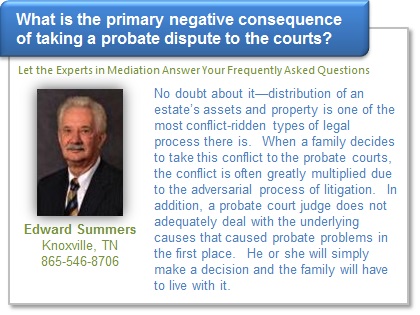
Paternity Rights: Jason Patric and Danielle Schreiber’s Dispute Shows the Legal Ramifications of What Paternity Means
 A recent article written by Ann O’Neill for CNN.com brought to light an example of the conflict surrounding the issue of “paternity” and what it means to be an unwed father seeking participation in his child’s life.
A recent article written by Ann O’Neill for CNN.com brought to light an example of the conflict surrounding the issue of “paternity” and what it means to be an unwed father seeking participation in his child’s life.
The article focuses on the ongoing legal battle between actor Jason Patric and former girlfriend Danielle Schreiber over paternity rights for their four-year-old son, Gus. According to Schreiber, Patric was nothing but a sperm donor for their son, who was born via in vitro fertilization. She insists that for the first two years of the boy’s life, Patric was only a visitor and hadn’t even set up a crib in his home for Gus.
However, Patric is seeking full paternity rights and the court struggle is showing just how difficult it is to determine an unwed father’s place in his child’s life. Schreiber is married (Patric is not) and has done everything from filing restraining orders to seeking court rulings to keep her former boyfriend from even mentioning Gus’s name via social media or to the media. She insists that Patric has not performed the role of “father” until recently, and even requested that his name be kept off of Gus’s birth certificate (which it was).
So what paternity rights does a biological father have? In a time when marriage is still seen by the courts as the best environment in which to raise children, and when many states have legalized gay marriage, the legal implications of this question have become more prevalent.
At the time Patric interviewed with CNN, he had not seen Gus in 66 weeks. However, he points out that he drove Gus’s mother to the Los Angeles clinic where Gus was conceived, and she listed both herself and Patric as the “intended parents” of the boy. He states that they celebrated Gus’s first birthday together and that Gus called him “dada”.
Patric states, “Two years ago, my birthday was on Father’s Day. I went out with Gus and Danielle. She got me a big Father’s Day cake with Gus’ picture on it for my birthday. I have pictures of that and the cake. Within 10 days of that, she said, ‘I have a lawyer, call a lawyer,’ and would not speak to me again.”
The couple attempted to work out the paternity dispute through mediation, but was unsuccessful. This year marks the second year that Patric has spent away from Gus on father’s day. “Of course it’s incredibly sad,” he said. “It’s the most important thing you can be to someone, a parent, and that’s what I’ve done. It’s about the boy, and you have to make everything about him.”
Although Patric is still fighting the courts for his paternity rights, he takes comfort in knowing that regardless of the outcome, Gus “will have a record of how hard I fought for him.”
Asset Distribution Mediation Following a Divorce: Who Gets What

Image courtesy of David Castillo Dominici / freedigitalphotos.net
Equitable asset distribution following a divorce doesn’t always go smoothly, and when there’s tension, determining “who gets what” can only worsen it. Since a large percentage of divorces follow months (and even years) of arguments and disputes between a divorcing couple, asset distribution can be seen as a sort of final straw that brings the couple’s conflict to its worst stage—and there’s good reason for this.
Assets and property are tied to emotions. A home that the couple shared, and potentially even raised a family in, holds memories and a sense of security that are difficult to let go of. The items within that home—perhaps items that the couple purchased together during better days—remind of a time when there was happiness instead of conflict, or romance instead of emotional distance. Therefore, dividing up these assets often ends up being a highly emotional process, since there is more happening than what’s on the surface.
Added to this is the financial uncertainty that divorce almost always brings to both spouses. Such uncertainty can escalate the desire to keep as much property and assets as possible. Since one spouse will likely stay in the marital home while the other finds a new place to live, the spouse who is moving out will have the additional financial concerns of purchasing new furniture and paying moving expenses. Without acknowledging this, one partner could end up shouldering more of the financial burden of the divorce than the other, prompting added resentment to an already bitter situation.
These issues all add up to the necessity of communicating openly about asset distribution, and there is no better legal process to do this than asset distribution mediation. Asset distribution mediation allows the divorcing couple to discuss the financial implications of the divorce, along with the most fair way to equally divide assets between them. A trained asset distribution mediator will be able to suggest ways in which the couple can do this without the added tension of “lawyering up” and attempting to take as much as possible with them in the divorce out of spite or anger.
December 22, 2014
The Top U.S. Healthcare Story For 2014: Cybersecurity – As healthcare becomes increasingly digitized (and more devices become network attached, attachable or aware), cybersecurity captured my vote as the top U.S. healthcare story for 2014.
Who Pays for Alimony? – When one thinks of alimony, most have a picture of the husband paying the wife, but that’s starting to change. The 2010 Census showed that 400,000 people received spousal support, and only 3% of those were men. A 2012 survey by the American Academy of Matrimonial Lawyers found that 47 percent had noticed an increase in the number of wives who are paying alimony.
Edward Summers

Four Reasons Why Your Family Should Choose Probate Mediation Instead of Going to Court
 When a beloved family member passes away, the family he or she leaves behind is often in significant turmoil and grief. Add to this the problems that can often arise after granting probate to the executor, and suddenly, family disagreements over probate can turn a family that was once close knit into a family that can barely stand to be in the room with each other.
When a beloved family member passes away, the family he or she leaves behind is often in significant turmoil and grief. Add to this the problems that can often arise after granting probate to the executor, and suddenly, family disagreements over probate can turn a family that was once close knit into a family that can barely stand to be in the room with each other.
No doubt about it—distribution of an estate’s assets and property is one of the most conflict-ridden types of legal process there is. When a family decides to take this conflict to the probate courts, the conflict is often greatly multiplied due to the adversarial process of litigation. In addition, a probate court judge does not adequately deal with the underlying causes that caused probate problems in the first place. He or she will simply make a decision and the family will have to live with it.
Probate mediation, however, works differently and is a far less contentious way of dealing with issues that arise during probate.
- First, probate mediation saves time and money for the family.
- Second, probate mediation is completely confidential, allowing the family to keep its conflict away from public scrutiny.
- Third, probate mediation keeps the control of the outcome in the hands of the family members, rather than in the hands of the probate judge.
- And finally, perhaps most importantly, probate mediation allows the family to communicate their grievances in such a way as to clear the air and get to the root cause of the issue (which is often far removed from the present-day conflict).
This type of open discussion and exploration of the root cause of the conflict not only helps the family to heal—it helps the family to move beyond the problem and build a better relationship with each other. In most cases, this is exactly what the family member who has passed away would want. It is in this exploration of the underlying issues and open communication that probate mediation shows its most beneficial quality—preserving relationships and de-escalating tension.
December 15, 2014
Divorce Rates May Not Be as High as You Think – Divorce rate data is far from perfect, but the general consensus among researchers is that divorce actually has declined since the 1980s, as this chart from Heritage’s 2014 Index of Culture and Opportunity shows. Divorce rates peaked in the early 1980s, after which they began trending downward. And researchers suggest that the lifetime probability of divorce is somewhere between 40 percent and 50 percent.
Which Mortgage Type Is Right For You? – According to a recent J.D. Power study, the majority (54%) of first-time home buyers don’t fully understand the different loan options available to them.
12 statistics on medical malpractice for orthopedic, neurosurgeons – Featured Medical malpractice can have a huge negative impact on a surgeon’s practice.




